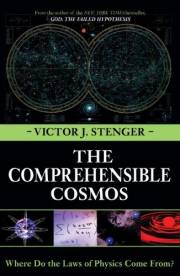 For those fascinated by how physics explains the universe and affects philosophy, this in-depth presentation of the cosmos, complete with an appendix of mathematical formulas, makes accessible to lay readers findings normally available only to professional scientists. In a series of remarkable developments in the 20th century and continuing into the 21st, elementary particle physicists, astronomers, and cosmologists have removed much of the mystery that surrounds our understanding of the physical universe.
For those fascinated by how physics explains the universe and affects philosophy, this in-depth presentation of the cosmos, complete with an appendix of mathematical formulas, makes accessible to lay readers findings normally available only to professional scientists. In a series of remarkable developments in the 20th century and continuing into the 21st, elementary particle physicists, astronomers, and cosmologists have removed much of the mystery that surrounds our understanding of the physical universe.
We now have mathematical models that are consistent with all observational data, including measurements of incredible precision, and we have a good understanding of why those models take the form they do. But the question arises: Where do the “laws” revealed by the mathematical models come from? Some conjecture that they represent a set of restraints on the behavior of matter that are built into the structure of the universe, either by God or some other ubiquitous governing principle. In this challenging, stimulating discussion of physics and its implications, the author disputes this notion.
Instead, he argues that physical laws are simply restrictions on the ways physicists may draw the models they use to represent the behavior of matter if they wish to do so objectively. Since mathematical descriptions of data must be independent of any specific point of view, that is, they must possess “point-of-view invariance” (maximum objectivity), they naturally conform to certain fundamental laws that insure that objectivity, such as the great conservation principles of energy and momentum. The laws of physics, however, are not simply an arbitrary set of rules since the observed data beautifully demonstrate their accuracy.
Editorial Reviews
From Publishers Weekly
Stenger (Has Science Found God?), emeritus professor of physics at the University of Hawaii, goes to great lengths to explain that, although he is not completely convinced that the laws of physics as we know them have objective reality, he doesn’t subscribe to the postmodernist notion that there is no such thing as objective reality. Stenger explains that the power of currently accepted models of physics arises from what he calls “point-of-view invariance,” i.e., they have the ability to make the same predictions regardless of where or when an observer is taking measurements. While this point is well made and important, Stenger’s descriptions of the models of physics and his discussion of cosmology will be largely incomprehensible to the average reader. A third of the book consists of eight mathematical supplements designed for “anyone who has taken the major courses in a four-year curriculum of undergraduate physics, chemistry, engineering, or mathematics.” B&w illus. (July)
Review
Praise for the New York Times bestseller God: The Failed Hypothesis:
“I learned an enormous amount from this splendid book.”
-Richard Dawkins, author of the New York Times best-seller The God Delusion
“Marshalling converging arguments from physics, astronomy, biology, and philosophy, Stenger has delivered a masterful blow in defense of reason. God: The Failed Hypothesis is a potent, readable, and well-timed assault upon religious delusion. It should be widely read.”
-Sam Harris, author of the New York Times bestsellers, The End of Faith and Letter to a Christian Nation
“Extremely tough and impressive…a great book…a huge addition to the arsenal of argument.”
-Christopher Hitchens, author of the New York Times bestseller God Is Not Great
About the Author
Victor J. Stenger (1935 – 2014) was┬áan adjunct professor of philosophy at the University of Colorado and emeritus professor of physics and astronomy at the University of Hawaii. He was the author of the New York Times bestseller God: The Failed Hypothesis, God and the Atom, God and the Folly of Faith, The Comprehensible Cosmos, and many other books.
